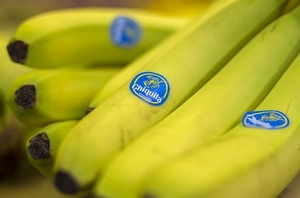 ht is a threat to crops, but the folks at Chiquita Brands International Inc. of Charlotte says there’s no cause for alarm.
ht is a threat to crops, but the folks at Chiquita Brands International Inc. of Charlotte says there’s no cause for alarm. Ed Lloyd, spokesman for Chiquita: “It’s certainly not an immediate threat to banana production in Latin America,” where Chiquita has its crops, Lloyd says. “This is something that this industry has dealt with for decades.” Travel restrictions will help prevent the fungus from spreading to other continents. If that doesn’t work, Chiquita and other growers are examining other varieties of bananas that would replace the Cavendish, which is susceptible to the fungus. Some experts say the days of the Cavendish are numbered.
Nature magazine is only slightly less pessimistic, pronouncing that “fears rise” that the fungus will make the continental jump to Latin America, where Chiquita grows almost all of its bananas. Lloyd says that’s much ado about very little. “It’s not a ‘sky is falling’ sort of situation,” he says. The fungus is a soil-borne, which usually requires taking infected soil from one place to another. It’s not a spore that can be spread through the air. “What you have to do is carry the soil from, say the Philippines to Latin America and plant it,” Lloyd continues. “You could introduce it that way.”
Fear of the Panama disease isn't affecting banana prices. The company is instead wrestling with an oversupply of the fruit, Ed Lonergan, Chiquita CEO, said during its latest earnings report. “We would love to see banana prices higher,” Lloyd says.







